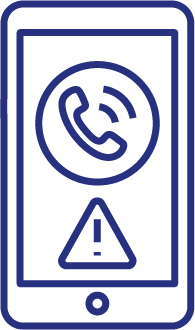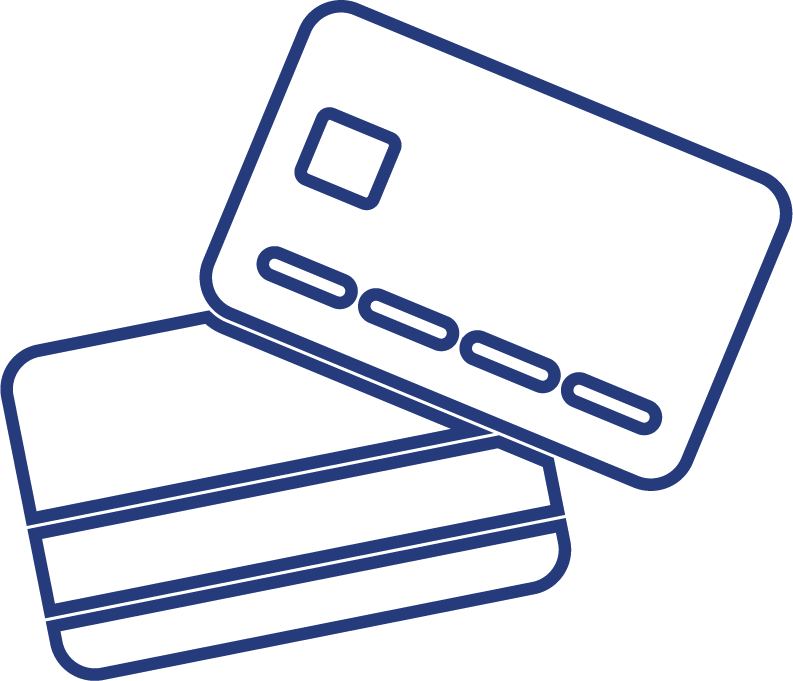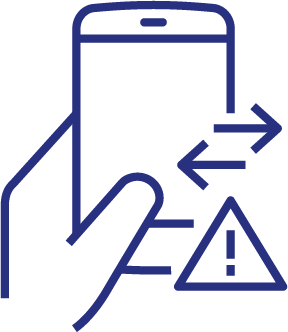Scam Awareness
From time to time, we see an increased volume of reported scam attempts concerning both residential and business customers. When contacted by a person claiming to represent National Grid, we encourage customers to always ask for identification. We require all National Grid employees and contractors to carry photo ID cards.
Stay Alert to the Different Types of Utility Scams
 Door-to-Door Scams
Door-to-Door Scams
If someone is at your door, ask for identification. All National Grid employees carry photo ID cards, and any contractor doing work for the company is also required to carry identification.
If someone is requesting entry into your home or place of business and does not show an ID card, don’t let that person in. Call National Grid or local law enforcement officials.
 Phone Scams
Phone Scams
Your Caller ID may say “National Grid” when a scammer is calling. If you are dealing with someone over the phone, please note that National Grid representatives will know your account number; never offer that information to a caller.
Ask the caller to provide the last five digits of your National Grid account number. If the caller doesn’t know your account number and you have any doubt the caller is a National Grid representative, or if they have any questions about your account balance, hang up immediately. Call National Grid or local law enforcement officials. You can also report fraud and suspicious communications to the FTC.
 Credit Scams
Credit Scams
Consumers with poor credit scores and/or balances on their gas and electric accounts may fall victim to scammers who make false claims that they can assist in repairing bad credit history through the purchase of a Credit Privacy Number (CPN). CPNs are 9-digit numbers that resemble Social Security Numbers but are not issued by the government. Using a CPN for utility service is illegal. If you or someone you know has purchased a CPN and been misled into believing it can be used to apply for credit, it is likely that you have become a victim of fraud. For more information, please visit the Federal Trade Commission to learn more about credit scams. You can also report fraud to the FTC.
 Email Scams
Email Scams
Scammers may try to contact you by email in an attempt to lure you to click on a link, visit a malicious website, reveal account information, or call a phone number.
Make sure you’re signed up for our emails by enrolling on our home page under Your Account. Be sure to add nationalgrid@emails.nationalgridus.com to your contact list. You can also report fraud and suspicious communications to the FTC.
 Texting Scams
Texting Scams
National Grid may contact you by text message for a variety of reasons: storm alerts, meter inspection appointments, or service work appointment confirmations.
Service appointment notifications, meter inspections, and similar notifications will come from 59528. Outage alerts will come from 64743 (NGRID). Payment or collection reminders will come from 647432 (NGRIDC). You can also report fraud and suspicious communications to the FTC.
Watch out for these red flags that may indicate a scam.
Three Simple Steps to Avoid Being Scammed
Scam Awareness and Preparedness FAQs
National Grid may ask for a payment over the phone, but will leave the method of payment to the customer. National Grid will not contact customers demanding immediate payment by wire transfer, Green Dot Money-Pak or any other pre-paid card service. Never -- under any circumstances -- offer personal or financial information to someone who you cannot identify.
If you are dealing with someone over the phone, please note that National Grid representatives will know your account number. Ask the caller to provide the last five digits of your National Grid account number. If the caller doesn’t know your account number and you have any doubt the caller is a National Grid representative, or if they have any questions about account balance and fish for help, take charge and hang up immediately. Call National Grid or local law enforcement officials.
If you are dealing with someone in person, please note that every National Grid employee carries a photo ID card, and any contractor doing work for the company is also required to carry ID. If someone requesting entry into your home or place of business does not show an ID card, don’t let that person in and call your local law enforcement.
National Grid has been alerted of scammers that will contact customers via phone or in person and claim to be from National Grid. Although tactics may vary, many scam reports include someone claiming to be from National Grid and will inform the customer that they have a past due balance on their utility bill. Scammers will demand payment, make threats to turn off power, and try to rush customers into making an immediate payment. Similar scams have been reported by utility customers across the U.S.
Scammers may also contact customers via email and attempt to lure recipients into clicking on a link, visiting a malicious website, revealing account information, or calling a phone number.
We have also received several reports of phone scams, including robocalls offering 25% off future bills. These calls are not officially from National Grid and are used as a way for scammers to obtain account information.
If you’re concerned about the status of your account, please call National Grid customer service. If you think you’ve fallen victim to a scam, call your local law enforcements officials and the Attorney General’s office immediately. You can also report fraud and suspicious communications to the FTC.
Contact Us
If you’re concerned about the status of your account, please call one of the National Grid customer service numbers listed below. If you think you’ve fallen victim to a scam, call your local law enforcements officials and the Attorney General’s office immediately.
- Massachusetts Electric: 1-800-322-3223
- Massachusetts Gas: 1-800-233-5325
- Upstate New York: 1-800-642-4272
- New York City / Metro: 1-718-643-4050
- Long Island: 1-800-930-5003
